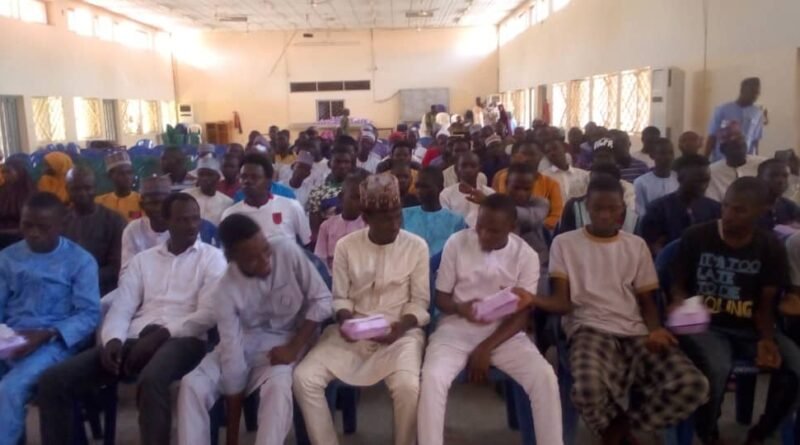Gombe L-Press Trains 290 Butchers, Meat Sellers on Hygienic Meat Processing
From Rabilu Abubakar, Gombe
As part of efforts to improve hygienic meat processing in Gombe State, the Livestock Productivity and Resilience Support Project (L-Press), in collaboration with the Gombe State Government, has trained 290 butchers and meat sellers. The training aims to enhance health standards in meat production across the state.
During the three-day workshop, L-Press Project Coordinator, Professor Usman Bello Abubakar, emphasized the importance of ensuring that meat consumed in Gombe State is processed hygienically.
He noted that the government is keen on supporting butchers by improving their professional skills, which is why specific individuals were chosen for the training.
Professor Abubakar warned that consuming unhygienic meat could lead to various diseases caused by contaminated products
He also announced that the Gombe State Government plans to establish a modern cattle market and an international-standard abattoir to further promote safe meat processing practices.
In his remarks, Sulaiman Umar Chansa, the newly elected Chairman of the Gombe State Butchers Association, applauded the initiative.
He encouraged his members to take the training seriously due to its educational benefits.
Chansa also commended Governor Muhammad Inuwa Yahaya for his vision in establishing modern abattoir facilities and cattle markets.
Dr. M.K. Lawan from Ahmadu Bello University, Zaria, presented a paper on best practices for processing hygienic meat and performing butchery work professionally.
Several participants expressed their appreciation for the program. Musa Sama’ila Baban Luwa from Akko Local Government Area, Ibrahim Haruna from Gombe, and Maryam Abdullahi from Filiya town in Shongom Local Government Area all described the training as a unique opportunity.
They hoped that future programs would be extended to include more participants.
At the end of the workshop, participants received safety kits that included rain boots, long jackets, hand gloves, helmets, and a transportation allowance to return to their respective local government areas.





